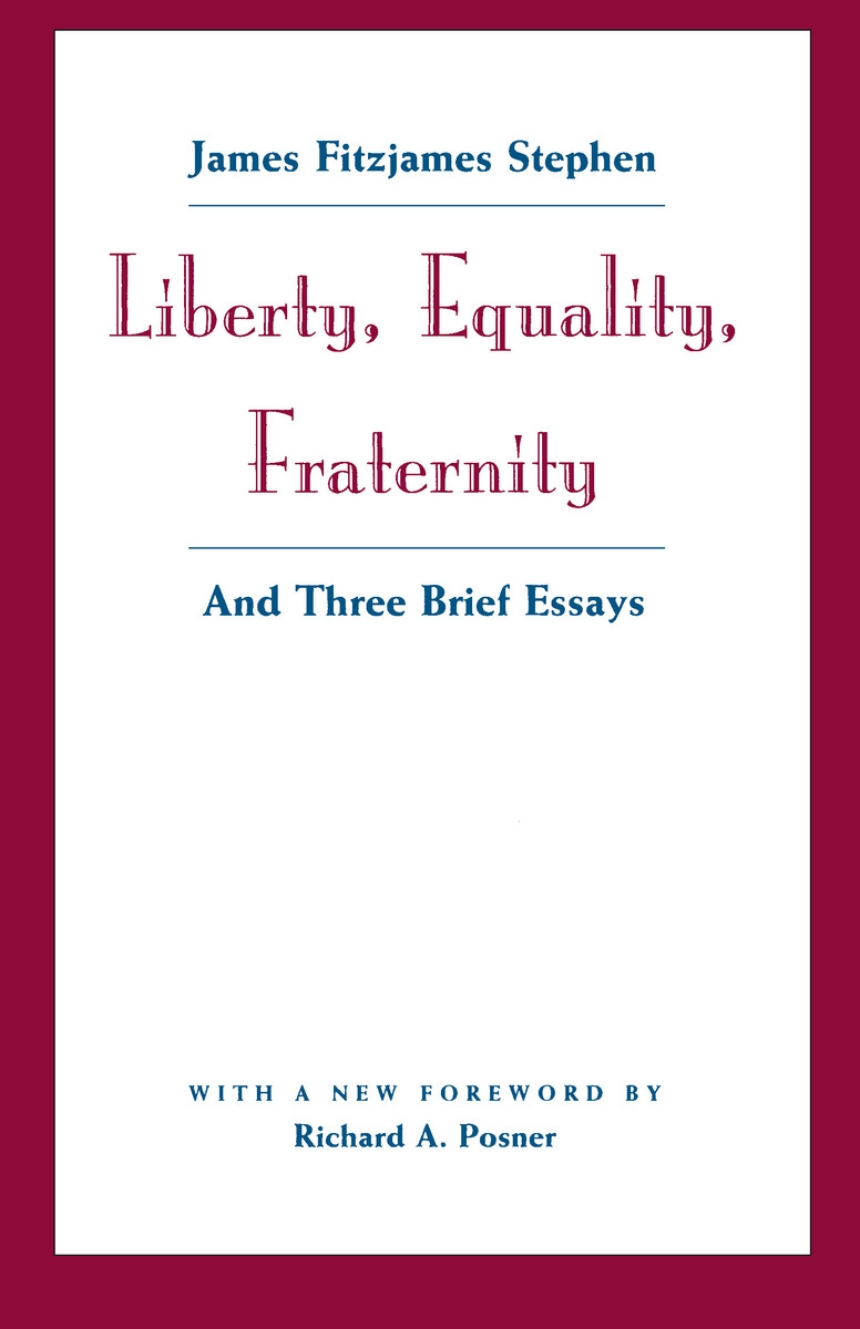Liberty, Equality, Fraternity
And Three Brief Essays
With great energy and clarity, Sir James Fitzjames Stephen (1829-1894), author of History of the Criminal Law of England, and judge of the High Court from 1879-91, challenges John Stuart Mill’s On Liberty and On Utilitarianism, arguing that Mill’s view of humanity is sentimental and utopian.
"His writing is strong meat—full of the threat of hellfrire, the virtue of government by the lash and a fervent belief that the state cannot remain neutral but has a duty to espouse a moral code."—Roderick Munday, Cambridge Law Journal
"His writing is strong meat—full of the threat of hellfrire, the virtue of government by the lash and a fervent belief that the state cannot remain neutral but has a duty to espouse a moral code."—Roderick Munday, Cambridge Law Journal
312 pages | frontispiece | 5-1/2 x 8-1/2 | © 1992
History: History of Ideas
Law and Legal Studies: Legal Thought
Political Science: Political and Social Theory
Table of Contents
Frontspiece: James Fitzjames Stephen
Foreword by Richard A. Posner
Bibliography of Works by Stephen
Acknowledgment; Notes on Abbreviations and Footnotes
Liberty, Equality, Fraternity (1874)
Preface to the Second Edition
I. The Doctrine of Liberty in General
II. The Liberty of Thought and Discussion
III. The Distinction between the Temporal and Spiritual Power
IV. The Doctrine of Liberty in Its Application to Morals
V. Equality
VI. Fraternity
VII. Conclusion
Note on Utilitarianism
From Essays by a Barrister (1862)
Conventional Morality
Philanthropy
Doing Good
General Index
Index of Subjects and Statements
Foreword by Richard A. Posner
Bibliography of Works by Stephen
Acknowledgment; Notes on Abbreviations and Footnotes
Liberty, Equality, Fraternity (1874)
Preface to the Second Edition
I. The Doctrine of Liberty in General
II. The Liberty of Thought and Discussion
III. The Distinction between the Temporal and Spiritual Power
IV. The Doctrine of Liberty in Its Application to Morals
V. Equality
VI. Fraternity
VII. Conclusion
Note on Utilitarianism
From Essays by a Barrister (1862)
Conventional Morality
Philanthropy
Doing Good
General Index
Index of Subjects and Statements
